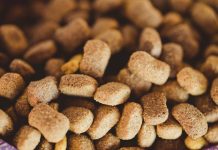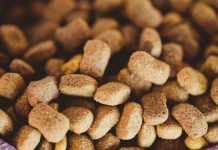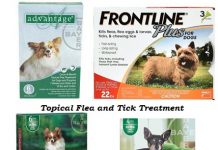When it comes to our beloved puppies, ensuring they receive the right nutrition is crucial for their growth, health, and happiness. However, just like humans, puppies can have unique dietary needs that require special attention. Whether it’s due to allergies, intolerances, or specific health conditions, finding the right food can sometimes feel like a daunting task. Fortunately, there are a variety of puppy food alternatives available that cater to these special dietary requirements. In this article, we’ll explore some of the most effective and nutritious options to help you make informed choices for your furry friend’s well-being. With a warm heart and a little guidance, you can ensure your puppy thrives on a diet that suits their individual needs.
Understanding Your Puppys Unique Dietary Needs
Each puppy is a bundle of joy and curiosity, and with that comes a variety of dietary requirements that may differ from one little furball to another. Understanding these needs is crucial for their growth and overall well-being. If your puppy has special dietary considerations, there are a range of food alternatives that can be both nutritious and delicious. Opting for these alternatives can help address issues like allergies, digestive sensitivities, or even unique nutritional needs. Here are some options to consider:
- Grain-Free Options: Ideal for puppies with grain allergies or sensitivities, these foods typically use substitutes like sweet potatoes or peas.
- Limited Ingredient Diets: Designed for puppies with food sensitivities, these diets contain fewer ingredients to help identify and eliminate allergens.
- High-Protein Formulas: Perfect for active breeds, these diets provide the extra protein needed for energy and muscle development.
- Organic and Natural Foods: Free from artificial additives and preservatives, these options are excellent for maintaining a clean diet.
- Raw Food Diets: Emulating what a dog might eat in the wild, these diets focus on raw meat and bones, offering a more natural diet for some puppies.
It’s essential to consult with your veterinarian to tailor a diet that meets the specific needs of your puppy. With the right food choices, you can ensure your furry friend grows healthy and strong, ready to explore the world with boundless energy.

Exploring Grain-Free Options for Sensitive Tummies
For puppies with sensitive stomachs, finding the right food can be a challenge. Fortunately, there are a variety of grain-free options that cater to their special dietary needs. Grain-free puppy foods are designed to be gentle on the digestive system while providing essential nutrients for growth and development. When choosing a grain-free diet, look for options that include high-quality protein sources such as chicken, turkey, or fish. These proteins are often easier to digest and provide the necessary building blocks for your puppy’s growing muscles.
- Sweet Potatoes: A great source of fiber and vitamins, sweet potatoes can help maintain digestive health.
- Peas: Rich in protein and carbohydrates, peas are an excellent alternative to grains.
- Pumpkin: Known for its soothing effects on the stomach, pumpkin can aid in digestion and promote a healthy gut.
- Quinoa: A nutrient-dense seed, quinoa is packed with essential amino acids and is easy to digest.
When transitioning your puppy to a grain-free diet, do so gradually to allow their digestive system to adjust. Start by mixing a small amount of the new food with their current diet, gradually increasing the proportion over a week. This gentle transition can help prevent any digestive upset. Always consult with your veterinarian before making significant changes to your puppy’s diet to ensure it meets their nutritional needs.

Protein-Rich Choices for Growing Puppies
Ensuring your puppy receives the right nutrients during their formative months is crucial for healthy growth and development. A key component of their diet should be protein, which supports muscle growth, immune function, and overall vitality. When considering alternatives to traditional puppy food, it’s important to explore options that are both nutritious and tailored to any special dietary needs your puppy may have.
- Lean Meats: Opt for lean sources like chicken, turkey, or lamb. These meats are high in protein and can be easily incorporated into homemade meals or as an addition to commercial puppy food.
- Fish: Rich in omega-3 fatty acids, fish like salmon or mackerel not only boost protein intake but also support brain development and a shiny coat.
- Eggs: A complete protein source, eggs are packed with essential amino acids and can be a simple addition to your puppy’s diet, either scrambled or boiled.
- Legumes: For those considering plant-based options, lentils and chickpeas offer a substantial protein boost. They are also high in fiber, promoting healthy digestion.
Always ensure that any new food is introduced gradually to your puppy’s diet to avoid digestive upset, and consult with your veterinarian to tailor these protein-rich choices to your puppy’s specific health requirements.

Homemade Recipes for Tailored Nutrition
For those cherished little paws with specific dietary requirements, crafting homemade meals can be a heartwarming and healthy solution. Tailoring your puppy’s diet allows you to manage allergies, support growth, and ensure they get the nutrition they need. Here are some key ingredients to consider incorporating:
- Lean Proteins: Opt for chicken, turkey, or lean beef. These provide essential amino acids for muscle development.
- Whole Grains: Brown rice or quinoa can be excellent sources of energy and fiber.
- Vegetables: Carrots, sweet potatoes, and peas add vitamins and minerals, enhancing immune function.
- Healthy Fats: Include small amounts of olive oil or flaxseed oil for a shiny coat and brain health.
Always ensure that the portions are balanced and consult with your veterinarian to adjust recipes according to your puppy’s unique health needs. By doing so, you’re not just feeding them; you’re nurturing their growth and happiness with every meal.
















